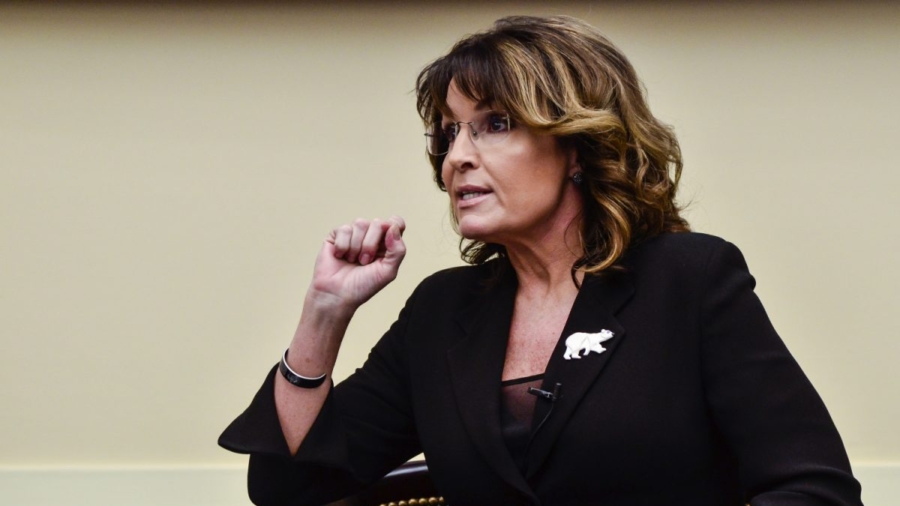NEW YORK—A federal appeals court revived former U.S. vice presidential candidate Sarah Palin’s defamation lawsuit against the New York Times, over an editorial that she said maliciously linked her to the 2011 mass shooting that seriously wounded then Arizona Representative Gabrielle Giffords.
In a 3-0 decision on Tuesday, Aug. 6, the 2nd U.S. Circuit Court of Appeals in Manhattan said the judge who dismissed Palin’s case ran afoul of federal rules designed to ensure fairness by first hearing testimony from Times editorial page editor James Bennet, and accepting it as credible.
Circuit Judge John Walker also said Palin had plausibly alleged that the Times defamed her, though she still bore the “high” burden of showing on the merits that the newspaper acted with “actual malice” toward her.
“We are disappointed in the decision and intend to continue to defend the action vigorously,” Times spokeswoman Danielle Rhoades Ha said in an email.
“This is-and has always been-a case about media accountability,” Palin’s lawyer Libby Locke said in an email. “We are pleased with the court’s decision, and we look forward to starting discovery and ultimately proceeding to trial.”
Palin, 55, was Republican presidential candidate John McCain’s running mate in 2008, and Alaska’s governor from 2006 to 2009.
The lawsuit arose from a June 14, 2017 editorial discussing that day’s shooting at an Alexandria, Virginia baseball field that injured four people, including Republican Representative Steve Scalise.
That editorial said Palin’s political action committee had circulated a map that put Giffords and 19 other Democrats under “stylized crosshairs” before the January 2011 shooting in Arizona by Jared Lee Loughner that wounded the congresswoman, and killed six people.
The Times later corrected the editorial, saying there was no link between “political rhetoric” and the Giffords shooting, and that the map depicted electoral districts, not specific Democratic lawmakers.
In his Aug. 2017 dismissal, U.S. District Judge Jed Rakoff said the editorial “included a few factual inaccuracies somewhat pertaining to Mrs. Palin that are very rapidly corrected. Negligence this may be; but defamation of a public figure it plainly is not.”
But in Tuesday’s decision, Walker said Rakoff had improperly relied on testimony from Bennet, who wrote the editorial, at an unusual evidentiary hearing.
Bennet said he had not intended to blame Palin for the 2011 shooting, nor had he closely reviewed coverage at the Times and The Atlantic that showed no connection between her and Loughner, but was simply making a point about the political environment. Bennet had been the Atlantic’s editor-in-chief.
Walker said, however, Rakoff should have relied solely on legal papers when deciding whether Palin could establish actual malice, rather than let Bennet testify at a hearing that ran “headlong” into federal court rules.
“The district court’s crediting his testimony impermissibly anchored the district court’s own negative view of the plausibility of Palin’s allegations,” he wrote.
Walker also rejected the Times’s view that Palin at most showed that Bennet made an unintended mistake, saying she plausibly alleged that Bennet might have been “reckless” in failing to first reacquaint himself with the Atlantic articles.
The judge also said the newspaper’s decision to swiftly correct the editorial after a social media backlash suggested that readers might have “perceived” the false statements about Palin as based on fact.
The case is Palin v New York Times Co, 2nd U.S. Circuit Court of Appeals, No. 17-3801.
By Jonathan Stempel

